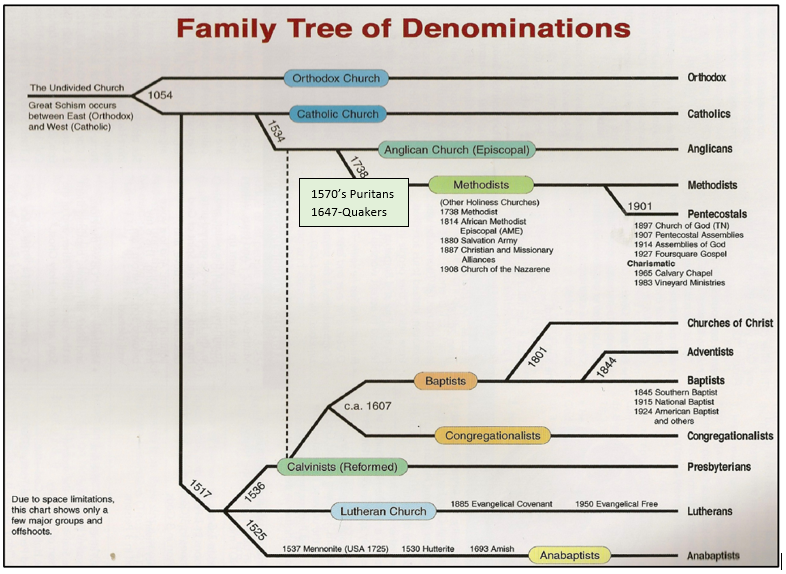
Catholic: Kelly/Kelley, Michael Kelly baptism & Kelly/Kelleys after immigration ; Bressette & Schumacher.
Anglican (including Church of Ireland): Michael Kelly and his daughter’s confirmations before immigration; and the English, prior to immigration.
Episcopalian: Early Virginians on mom’s side; English ancestry.
Religious Society of Friends Church (Quaker) Mary Irwin Clifford, late in life.
Methodist: Dean Kelley, Cornett? & Russell, Scott.
Lutheran: Reimers, DeBuhr, Hefner, Hechler, Baugher, Weimer prior to immigration; German ancestry.
Mennonite: Schantz, Weimer, Delp; all German ancestry.
Dunkard: Hildebrand, German ancestry.
Evangelical (Dutch or German) Reformed Church Auen, Likely Deckers & Verbrycks, Delp prior to immigration; includes Frisian.
Presbyterian: Auen, Irwin, likely Gordon & Lawson; Frisian and Scotch-Irish
Baptist: Doretta in High School, Sarah Verbryck Clifford bible
General non-denominational Christian: Doretta as a child
The history of religions in my family appears to mirror much of what occurred In America’s melting pot. Some ancestors may have been part of the original founding colonies, but most were people who assimilated into the populations where they migrated. People of different religions met and married. Ancestral couples would then have to decide which traditions to adopt and pass on to their children.
Dana Kelley Bressette (me). I have been mostly unchurched. I vaguely remember attending church/Sunday School as a small child. I sometimes went to my best friend’s Evangelical Free Church after spending the night at her house. Most of my religious education came through watching movies, the Ten Commandments, and the like. My brother, Bruce, joined the Old Apostolic Lutheran after returning home from College.
Kelleys:
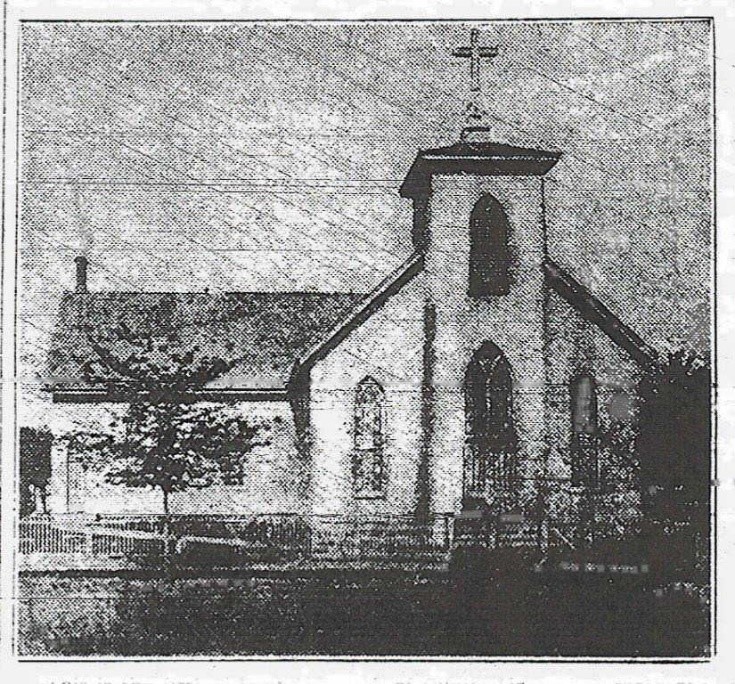
My great-great grandfather, Michael Britt Kelly, was baptized in the Catholic Church, but at some time prior to his marriage he converted to the Church of Ireland (Anglican). We know from history that there was strong economic pressure in Ireland which forced many to convert just to be able to work and live a decent life in Ireland. Michael Kelly was a teacher and even taught school at a parochial Church of Ireland school in Beigh-Askeaton, Limerick County, during the famine years. His children were baptized and confirmed in the Church of Ireland. After immigration to the U.S. It is unclear whether Michael converted back to Catholicism, but his children were all married and had children baptized at St. Mary’s Catholic Church in Clinton, Iowa.
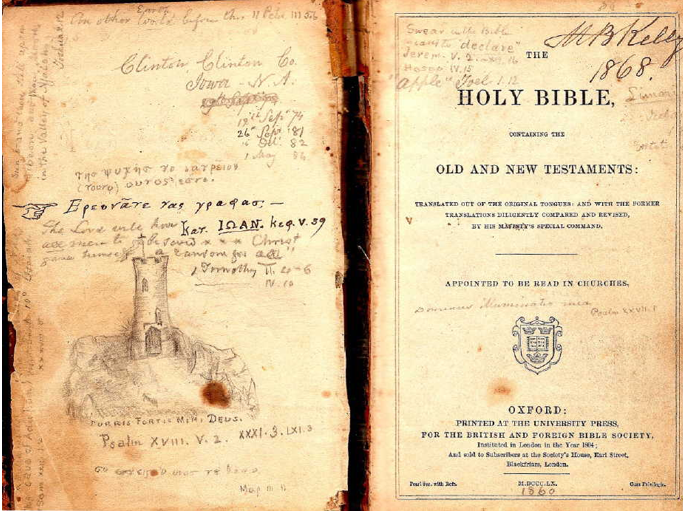
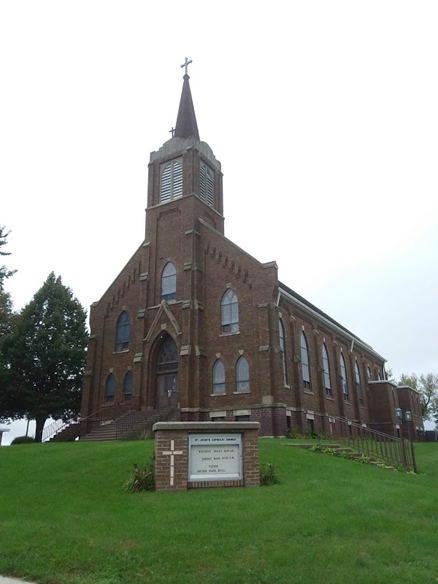
My great-grandfather, Andrew Alfred Kelley, was baptized in the Church of Ireland. He married his first 2 wives at St. Mary’s Catholic Church in Clinton, Iowa. He later moved to western Iowa where he met and married my great grandmother, Ida Auen. She was the daughter of East Frisian immigrants who attended a Presbyterian Church in Breda, Iowa. They were married in Carroll at the County Courthouse. They settled in Arcadia, Iowa, where St. John’s Catholic Church loomed large.
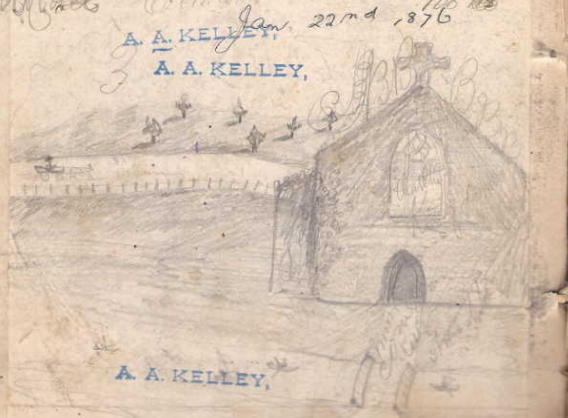
My Grandfather, William Walter Kelley, was likely raised Catholic in the small town of Arcadia, Iowa, but probably attended his mother’s Presbyterian Church at times. According to a family story, the family was working in the garden when the church bells rang out. Bill complained about having to go to Mass for some long dead person. His father, who overheard, pitched an ear of corn that went whizzing by Bill’s ear. Bill left home, at age 15, (and the Catholic church) the next day and joined a travelling medicine show. He settled in Holstein, Iowa where he met his wife, Marie Reimers. They were married at the Carroll County Courthouse. As a child, his oldest son, Warren went to the Lutheran church with his Grandmother Reimers and continued to attend after her death. But when he was told he had to be baptized to continue to attend, His father, Bill, got mad and refused to allow it. Afterwards Warren went to the Methodist Church. (Bill was active in the Masons, John J Mercer Lodge in Omaha.)
My father, Dean Darrell Kelley, Dean Kelley- was baptized, when he was 16, in the Methodist Church in Omaha Nebraska. He married my mom, Doretta Clifford at a Methodist Church in Monterey Park, California. He did not attend church regularly. Later in life when asked, he would just say that “When you have taken as many philosophy courses as I have, you begin to question.”
Auens:
Eilert and Jantje Auen emigrated from East Friesland in Germany.
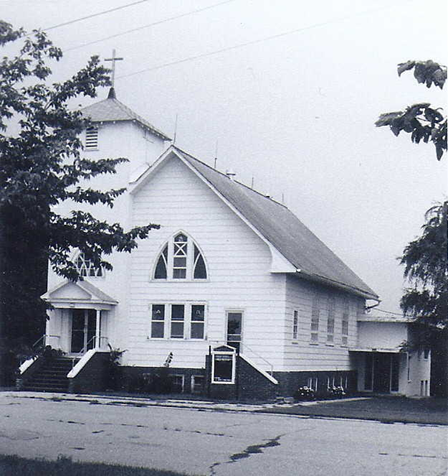
According to records from my cousin, Sharon Knoblock, Eilert was christened in the Evangelical Reformed Church in Beschotenweg. Ostfriesland. Jantje attended the Evangelical Lutheran Church in Warsingsfehn, Ostfriesland, where Eilert and Jantje were married. It is unclear whether their specific ancestors were Lutherans or Reformed. In the description of the record collection “Germany, Lutheran Baptisms, Marriages, and Burials, 1500-1971”at Ancestry, it states that “Events in the original church registers were recorded by the local pastor. Occasionally, events recorded in the lives of Lutheran, Reformed and Catholic parishioners were combined together into a single register.” Eilert and Jantje Auen settled in Wheatland Township in Iowa where they attended the Wheatland Presbyterian Church in Breda, Iowa. (Presbyterians arose out of Calvinist (Reformed) Churches.)
Reimers:
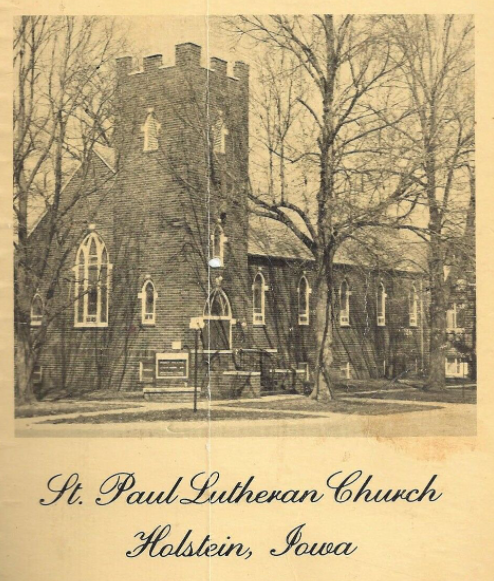
Claus Johann Reimers and Marie Brocksen emigrated from Schleswig-Holstein in Germany. They were both baptized in the Evangelical Lutheran Church. As were their ancestors many generations back.
Brocksen/Brockes:
My 6th great grandfather, Barthold Heinrich Brockes (1680-1747), a German poet,born in Hamburg, is my most famous confirmed ancestor. In his Passion oratorio: “Der für die Sünde der Welt gemarterte und sterbende Jesus“ (Jesus Who Suffered and Died for the Sins of the World), a tenor Evangelist narrates events from all four Gospels’ accounts of Jesus’ suffering and death. It was set to music by composers such as Handel, Telemann and others. He was best known for his poems extolling the glory of god and the beauty of the natural world. In his book of poems: Irdisches Vergnügen in Gott (Earthly pleasure in God), he wrote poems about the world, the seasons, the elements, time, the weather, the landscape, animals, trees & flowers, the human condition, and more… Following is a poem he wrote extolling God: (The translation is directly from Google Translate, with a few small changes. I am surprised at how well it came out!)
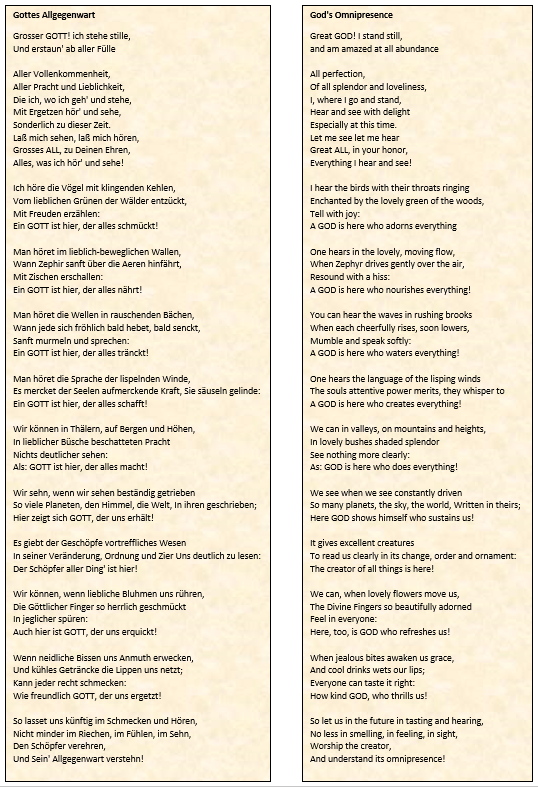
Cliffords:
My mom’s family were not regular church goers. However, my mom, Doretta Clifford-earned a bible school promotion from the First Christian Bible Church in June 1939, when she was 8 years old. In High School, she became a member of the Alhambra Baptist Church (mostly for social reasons).
I don’t know of any particular denomination that my grandparents, Walter Clifford & Alice Cornett, attended, but it is likely they attended local churches in Kansas where they grew up. Alice was familiar with hymns sung at her grandson’s church. Walter and Alice were married 1st at the County Courthouse in Bartlesville, Oklahoma, 2nd in Orange County California.
My great grandparents, Charles Clifford and Sarah J. Verbryck were married by a Probate Judge in Independence, Kansas.
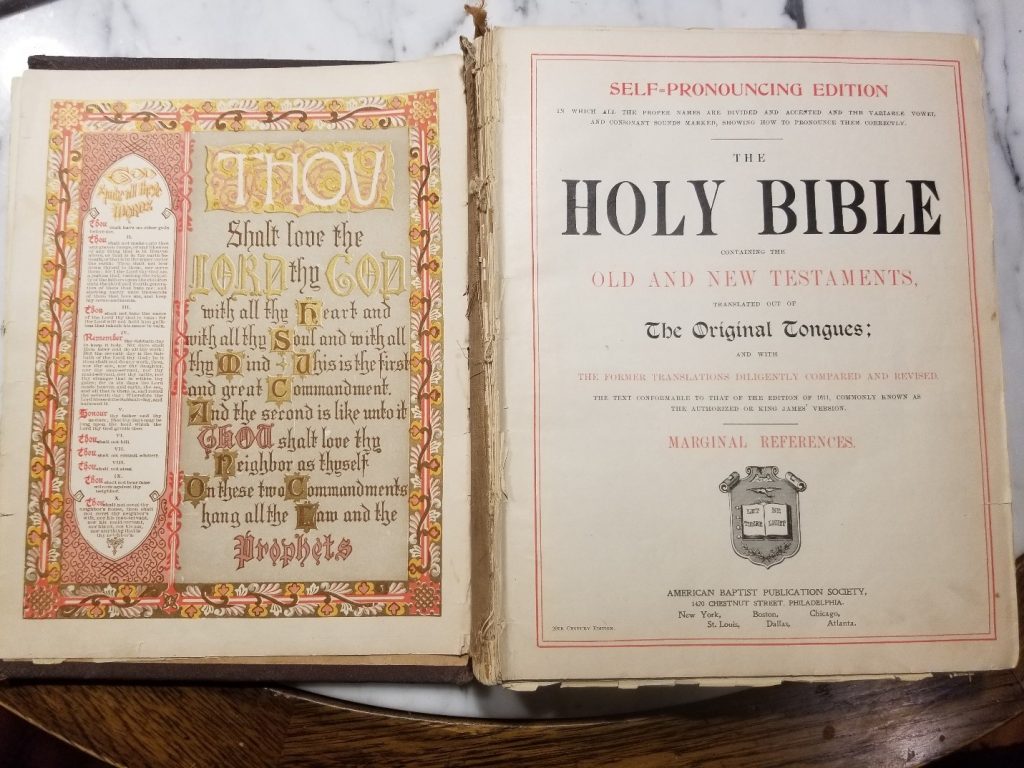
Charles Clifford’s mother, Mary Irwin: From her obituary: “She was once a member of the Christian Church but united with the Friends in 1895.” (Age 74) The Society of Friends are the Quakers.
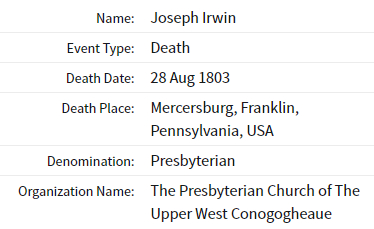
Although the Cliffords were thought to be English. Many on this line were Scotch-Irish or Manx (The Gordons, Lawsons, & Irwins.) It is a good guess that the Scotch-Irish would have been Presbyterian.
The exception on this side is the Deckers.
Although, Dorcas Decker Irwin, my 3rd Great-Grandmother was baptized at the St. John’s Episcopal Church in York, Pennsylvania. She mostly descends from Dutch settlers in New Netherlands (New York), even though her paternal Decker line may have originated in Schleswig-Holstein and Denmark. It is likely that most of her ancestors in this country were members of the U.S. Dutch Reformed Church.
Verbrycks:
The Verbrycks also mostly descend from Dutch Settlers in New Netherlands, although some may have been from other areas such as Belgium, France, Germany, Schleswig-Holstein, East Friesland, Spain, Norway, & England. My 4th great-grandparents, William Verbryck and Rebecca Low, were members on the U.S. Dutch Reformed Church in New Jersey.

Holts: My 3rd great grandfather,William Verbryck Jr. married Sarah Holt in Mercer County, Kentucky. Her parents were reportedly born in Virginia and North Carolina. I have tried to use DNA to figure out this line but have been unable to verify her lineage for sure. My best guess is descendancy from the family of Plunkett Holts (Jr and/or Sr.) due to shared matches with a known Holt DNA match. Most in those lines appear to have been Baptists, with some Methodists.
Hildebrand: Abraham Hildebrand, my 4th great-grandfather, chose to be non-associated during the Revolutionary War due to his religious beliefs as a Dunkard – a Peace church. He married Anna Schantz whose family were active in the Mennonite Church. “The Mennonites like the Brethren, at the time, used lay ministers who were elected by the Congregation. The State of Pennsylvania did not recognize marriages performed by Lay ministers. Abraham and Anna were married February 14, 1776, In Saint James Episcopal Church of Lancaster… to have a lawful marriage approved by the state.”
Weimer: My 5th great-grandfather, John Dewatt Weimer and family were listed as members of the Mennonite church in Lancaster, Pennsylvania. The family was likely Lutheran prior to emigrating from Dortmund, Germany.
Hefner: My 5th great grandfather, Albertus Hefner and his wife were buried in a Lutheran Cemetery in Franklin County, Pennsylvania.
Cornetts: I have no direct evidence on the religion of the Cornetts, but looking at where they came from in Grayson County, Virginia, it is likely that they were Methodists or perhaps, Baptists.
Russell: Philip and Rebeckah Russell, my 4th great-grandparents, were married by the Reverend Elisha Bedwell, a Methodist minister in Grayson County, Virginia. The Russells, originally were from Kent in England and were likely Anglican.
Stamper: Jonathan Brooks Stamper, my 6th great-grandfather, was baptized in Christ (Episcopal) Church Middlesex County, Virginia. His parents, Powell Stamper and Mary Brooks were also married there.
Hackler/Hechler: Peter Hackler/Hechler, my 4th great grandfather, was baptized inQuickel’s (Zion) Lutheran and Reformed Church, York, County Pennsylvania.
Delp: Hans George Delp, my 6th great grandfather,was baptized in the Evangelical Reformed Church in Darmstadt, Germany. He apparently, joined the Mennonite Church when he married in Pennsylvania.
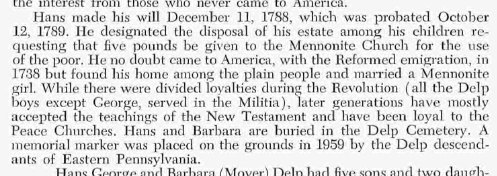
Woodrum: John Woodrum, my 6th great grandfather married his wife Mary/Molly at St. James Northam Parish Episcopal Church in Goochland, Virginia, about 1727. It is likely that most of the early Virginians on this side of the family were Episcopalian.
Baugher: Emily Jane Baugher, my 2nd great grandmother: It states in her obituary: “She was a Christian from early womanhood and a faithful servant the Christ she promised to serve.” Her funeral was officiated by a Methodist Episcopal minister. John Jacob Baugher, my 5th great-grandfather was christened at St. Matthews Lutheran Church Hanover, Adams Co., PA. His father Pastor Johannus Georgius Bager was sent to America by the Lutheran Church and is credited with establishing over 100 Lutheran churches in Pennsylvania and Maryland.
Higginbotham: I have not been able to confirm a lineage for this side of the family. There are a few different trees that show different possible ancestries. But it is clear that we must descend from Captain John Joseph Higginbotham (1638-1813) (or at least a relative). He was born in Saint Philip Barbados and died in Amherst, Virginia. We have many DNA matches to Higginbothams who descend from this family. He was baptized at Saint Philip Parish (Anglican) Church.
My husband, Edmund Bressette’s family:
Edmund Bressette, Jr. was raised Catholic.
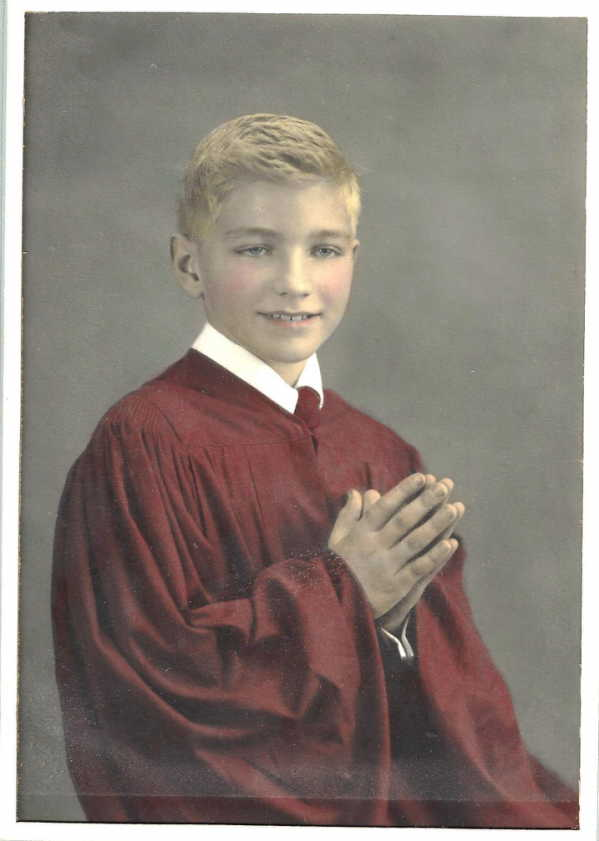
His father, Edmund Bressette, Sr.’s ancestry is all Catholic French Canadian as far as I have been able to determine. He attended Keveny Memorial Academy, a Catholic School in Cohoes, New York.
Scott: Ed Jr’s mother, Pamela Scott, was also raised Catholic and attended Aquinas Academy, a Catholic girls High School in Tacoma, Washington. Her mother, Malvina Schumacher Scott, descends from ethnic Alsatian/Germans, who had immigrated to “Little Russia” in the Odessa region of the Ukraine, prior to immigrating to the Dakota Territory in the U.S. (Most of these Russian-German immigrants were Lutheran, some were Mennonite, about ¼ were Catholic. The Alsatians may have been predominantly Catholic.) I don’t know if all Malvina’s ancestors were all Catholic or not.
Malvina and Oren Scott were married by Rev. James J. Buck, a Catholic Priest in the rectory at the Star of the Sea Catholic Church.
Pam’s father, Oren Scott, was adopted by Russell and Erma Scott, who were married by Bert V. Bradshaw, Russell’s brother-in-law, a Methodist Minister.
On Oren Scott’s biological tree, although every link is not confirmed, it is clear the ancestry on his biological father’s side descends from Rands and Mitchells from New England. (Maine and Rhode Island, respectively), who were predominantly Puritans. On his biological mother’s side, he descends from Bearns & Keatings, (English and Irish immigrants to St. John’s Newfoundland. They all appeared to be members of the St. John the Baptist Anglican Church. There is one line, I am not totally sure is correct, but appears most likely is the Lundy’s from Canada. Some of the Canadian census records actually show religious affiliations. The Lundys were mostly listed as Presbyterian, prior to that they were Quakers in Pennsylvania. (Apparently, loyalists that moved to Canada after the Revolutionary War.)
As we go back further in time, our history is the history of Europe. An app that Ancestry used to have suggested that we are descended on my grandmother’s side from Sir Thomas More (1478-1535). The app is no longer available, and I can’t remember the actual line of descent to go back and verify. Now venerated as a Saint by the Catholic Church, Sir Thomas More served as Lord High Chancellor of England to Henry VIII. His opposition to the Protestant Reformation and his refusal to acknowledge Henry as supreme head of the Church of England led to his conviction of and execution for treason. He was reported to have said: “I die the King’s good servant, and God’s first”.
Math shows that we all descend from royalty. I believe that we descend from Robert the Bruce (1274-1329) in Scotland, William the Conqueror (1028-1087) of England, and Brian Boru (~941-1014) of Ireland, to name a few. Math also tells as that all people of European ancestry descend from Charlemagne or Charles I the Great (748-814), who united most of Western Europe as a Holy Roman Emperor…
Going back further in time to pre-Christian Europe, we can look at the ethnicity of our ancestors to determine likely beliefs of theirs. In my ancestry there appears to be two main groups: The Celtic and the Germanic/Anglo-Saxon/Norse. Unfortunately, there are not many primary sources about some of these religions. Most is known only through the biased writings of the Romans.
Celts had Gods and Goddesses each linked to aspects of life and the natural world. Part of Irish Celtic religion was the belief that naturally occurring things such as rocks, rivers and trees had spirits, not necessarily good or bad. They believed in an afterlife and an otherworld, either underground or islands in the sea. They had a priestly caste known as druids responsible for magic and ritual ceremonies.
The Germanic and Norse religions were closely related, Some gods were more important than others in different regions:
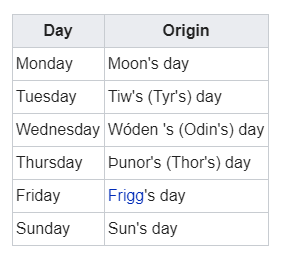
Germans/Anglo-Saxon were also polytheistic, their most prominent deity was probably Woden (Odin), other prominent gods included Thunor (Thor) and Tiw, Balder, Frey, Freyja, and Frigg. “In early times there were two groups of gods—the Aesir and the Vanir. However, after a war between the rival pantheons …the defeated Vanir were absorbed into the Aesir.” There was also a belief in a variety of other supernatural entities which inhabited the landscape, including elves, nicor, and dragons. The Germanic people seem not to have had a formal priesthood, but it is suggested that “Germanic peoples practiced some of the same ‘spiritual’ rituals as the Celts, including sacrifice, divination, and the belief in a spiritual connection with the natural environment around them.”
Norse gods: More is known about the Norse mythology, at least the gods and mythic stories, than other northern European pre-Christian religions. Norse religion is polytheistic. In the Viking Age (9th-11th centuries), there were four main deities, with earlier gods remembered as minor deities and other supernatural beings of varying importance.
The Norse gods are of three different types:
- Aesir – the gods of the tribe or clan, representing kingship, order, craft, etc. (incl. Odin and Thor)
- Vanir – gods of the fertility of the earth and forces of nature (incl. Freyr and Freyja)
- Jotnar – giant-gods who are in a constant state of war with the Aesir, representing chaos and destruction
The four main deities in Germanic religion and Asatru are:
- Odin (Germanic Woden) – god of magic, poetry, riches and the dead; ruler of Valhalla (gave his name to Wednesday)
- Thor – sky god who wields a hammer, controls the weather, and protects the law and the community (gave his name to Thursday)
- Freyr – fertility god represented with a phallic statue and seen as the founder of the Swedish royal dynasty
- Freyja – fertility goddess of love and beauty, sister of Freyr, known by many names (including Frigg, Odin’s wife and patron of families, who gave her name to Friday)
Other deities:
- Njord – father of Freyr and Freyja, god of ships, sea and lakes
- Tyr (Germanic Tiu) – god of battle, sacrifice, and justice (gave his name to Tuesday)
- Ullr – god of death, winter, and hunting
- Loki – the trickster
“Norse religion did not have a unified conception of the afterlife. Many believed that fallen warriors would go to Valhalla. ‘There they would feast and live in warrior paradise until they were called on to fight again in the final battle of Ragnarok, the Viking apocalypse.’…others may go to other various versions of an afterlife. The Norse had no conception of an afterlife being a reward or punishment as in the Christian tradition. Their “Hel” …or “underworld isn’t described often in the sources, when it is, it’s generally cast in neutral or even positive terms. As a place where the dead live on in some capacity, …The dead in Hel spend their time doing the same kinds of things that Viking Age men and women did: eating, drinking, fighting, sleeping, and so forth. It wasn’t a place of eternal bliss or torment as much as it was simply a continuation of life somewhere else.”
If we go back far enough, we may also have few ancestors from southern Europe that don’t show up in ethnicity predictions. Some ethnicity estimates also had a small amount of Ashkenazi Jew, which mostly disappeared with ethnicity updates. The Bressettes also are more likely to have more southern European… There was likely to have been some Roman in our ancestries somewhere, too…So we can add in the Roman Pantheon!